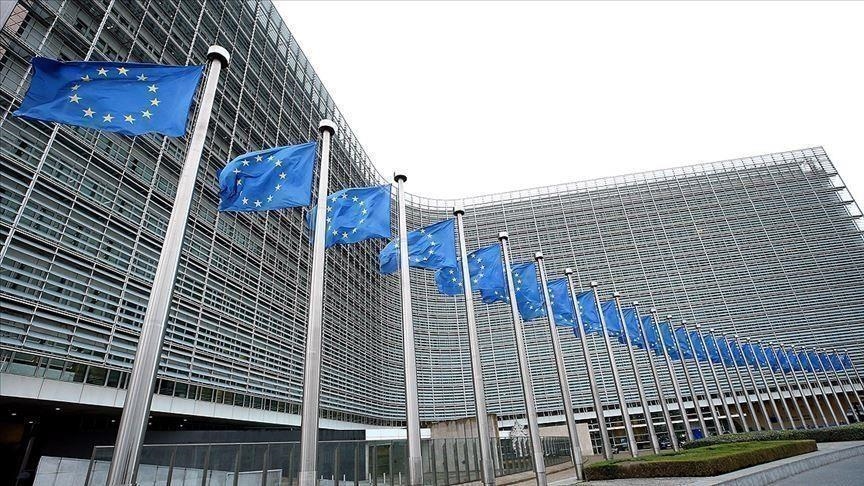EU imposes sanctions on individuals, entities linked to human rights violations in Russia, Iran
EU Council also lists individuals, entities in Moldova, Haiti

BRUSSELS / ISTANBUL
The European Council on Tuesday imposed restrictive measures on individuals and entities involved in serious "human rights violations" in Russia and Iran.
"The Council today imposed restrictive measures on eight persons and one entity under the EU Global Human Rights Sanctions regime. They are responsible of committing serious human rights violations and abuses on behalf of the Iranian state bodies outside of Iran," according to a statement by the council.
It listed a "criminal group" called the Zindashti Network claimed to be connected to the Iranian Intelligence and Security Ministry and its boss, along with his five associates.
The European Council also targeted Mohammed Ansari, leader of the Islamic Revolutionary Guard Corps (IRGC) Quds Force Unit 840.
"Today’s listings confirm the EU’s concerns about transnational repression by Iranian state bodies through the use of proxy agents, in particular involving criminals and organised crime networks targeting dissidents and human rights defenders across the world, including on EU territory," it said.
It said those listed will be subject to an asset freeze and a prohibition of direct or indirect provision of funds or economic resources. The eight individuals will also be banned from entering the EU.
In Russia, the EU sanctioned five members of the Russian judiciary implicated in the persecution of activist Alexei Gorinov, who was sentenced to three years in a strict penal colony for "expressing his opinion" about the war in Ukraine.
Those designated are subject to an asset freeze, with EU citizens and companies prohibited from providing funds to them, and natural persons additionally facing a travel ban preventing entry or transit through EU territories.
In Moldova, seven individuals and three entities linked to destabilizing activities ahead of the 2024 presidential elections and constitutional referendum on EU accession were targeted.
The sanctions focus on close associates of Ilan Shor, who is under EU sanctions for illegally financing political parties and inciting violence.
The newly listed individuals include leaders and members of parties that succeeded the outlawed SOR party, some of whom were allegedly involved in vote buying during the elections and the EU accession referendum.
Among the entities listed are the Moscow-connected company A7, Victory/Pobeda Political Bloc, and Cultural Educational Centre of Moldova. Sanctioned parties face asset freezes and travel restrictions.
The council also decided to list three individuals who have engaged in "criminal activities" and "gang violence" in Haiti, who will also be subject to an asset freeze, prohibition of funds or economic resources, along with a travel ban.
"Council decided today to renew the EU framework for restrictive measures against those responsible for threatening the peace, stability and security of Haiti or undermining democracy and the rule of law in the country until 29 July 2026," it said.
It voiced the bloc's concern about the "persistent and destabilising criminal activities, including the high levels of gang violence, that undermine the stability of the region."
Hybrid threats
Separately, the EU imposed additional sanctions on nine individuals and six entities over Russia's "destabilizing actions abroad, including foreign information manipulation and interference (FIMI)."
Among those sanctioned is the state-owned Russian Television and Radio Broadcasting Network (RTRS), accused of "replacing Ukrainian broadcasting systems in occupied regions, with a network that transmits content approved by the Russian Government with the aim of suppressing dissent." Its director and another senior official were also listed.
The 841st Separate Electronic Warfare Center and two of its top staff were sanctioned for GNSS signal jamming from the Russian exclave of Kaliningrad, affecting civil aviation in the Baltics.
Entities including the BRICS Journalists Association (BJA), Foundation to Battle Injustice (R-FBI), and Center for Geopolitical Expertise (CGE) were also targeted. Their activities allegedly aimed at discrediting Ukraine and Western leaders.
A GRU officer, several "propagandists," and the media company Tigerweb run by Yevgeny Shevchenko were also listed. Tigerweb is accused of spreading propaganda in several Western countries.
In a separate move, the EU sanctioned Nathalie Yamb, an influencer who "has adopted Moscow's language targeting the West and France."








